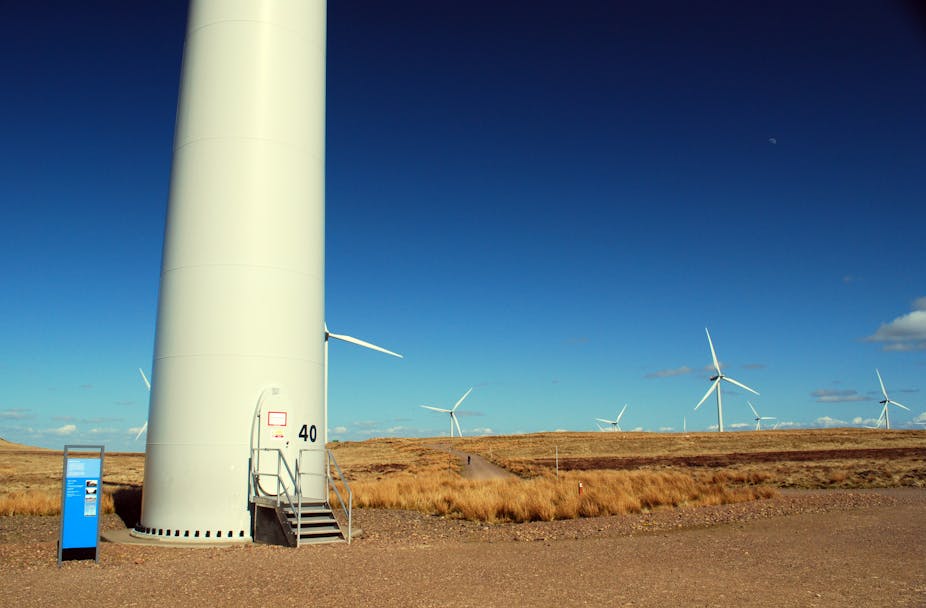Both the Scottish and UK governments have published new contributions on the energy and independence debate in recent days. Energy Secretary Ed Davey visited Edinburgh to coincide with the Department for Energy and Climate Change’s 100-page “command paper” on the subject.
It was far more substantial than the Scottish government’s 11-page publication, which was released two days before. For the Scottish media this was a headline news item, with both Davey and Fergus Ewing, his Scottish counterpart, giving interviews.
The UK government paper presents detailed arguments and cost estimates for the historic, current and future benefits to Scotland of being part of an integrated GB energy market. It emphasises that Scottish businesses and consumers enjoy substantial net benefits from being part of the UK.
For example, the costs of renewable energy subsidies are supported by all UK electricity bill payers, and almost 30% of the total goes to wind farms and other generators based in Scotland. This is despite the fact that Scotland accounts for only around 10% of UK electricity sales.
Grid and other benefits
DECC’s report points to similar benefits from supporting Scottish electricity grid investment (key for getting renewable energy to users further south) and subsidising remote and off-grid Scottish consumers.
As costs grow in the next few years to meet policy targets for decarbonisation and renewables expansion, DECC estimates that Scottish consumers would pay between £38 and £189 extra per head each year on their energy bills by 2020 if the country was independent.
Other costs and risks of independence are also set out: the threat posed to major Scottish-based but UK-funded public investments such as the Green Investment Bank, which is based in Edinburgh; and the proposed Peterhead carbon capture and storage demonstration plant – one of two in the UK earmarked for support through the UK Government’s £1 billion support fund (the other is in Yorkshire).
DECC also notes a broader problem of attracting capital for a newly independent small country – touching on the bigger issue of currency stability in the absence of a shared pound.
The Scottish response
The Scottish government’s statement is not a systematic and detailed counter to the UK government’s arguments. Instead it describes how Whitehall has mismanaged energy policy.
The Scottish government has to tread a delicate line here, arguing the failure of current arrangements while also noting successes such as the growth of the Scottish renewables sector and continued oil and gas revenues.
The main points of criticism are underinvestment and the looming capacity crunch in UK electricity supply; Conservative/Lib Dem divisions on energy policy leading to loss of investor confidence; and the UK’s costly commitment to new nuclear power stations.
The Scottish government claims its own approach to energy policy has been “clear and consistent”. In contrast to DECC’s arguments about the subsidy benefits to Scotland from GB market integration, this report talks about how the UK relies on Scotland to “keep the lights on” by acting as its energy reserve.
Compare and contrast
Read alongside each other, the Scottish paper is more selective and overtly political. There has been a lack of detail in the Scottish government’s statements on energy matters and independence to date, though that may change with the imminent report from the Scottish Regulatory Commission on Energy Regulation.
As with the currency question, the Scottish government essentially argues for continuity after independence: continued operation of an integrated GB market reflecting common interests in energy supply security and the growth of low carbon generation.
The UK government argues that independence would lead to losing the benefits of integration, with post-independence governments and regulators on each side of the border required by statute to serve self-interest rather than common interests.
Admittedly, this ignores wider factors. DECC argues the case for the benefits of scale and integration but at the same time the UK faces a possible withdrawal from the EU after the 2015 general election.
For the Scottish government, the largely unanswered question is: “What is Plan B if the UK government refuses to recognise the common interests in an energy partnership after independence?”
As with independence matters more generally, undecided voters are left frustrated by the absence in much of the public debate of a balanced and thorough analysis of the claims and counter claims.
This piece is one of two that The Conversation has published on this subject today. The other can be read here.

